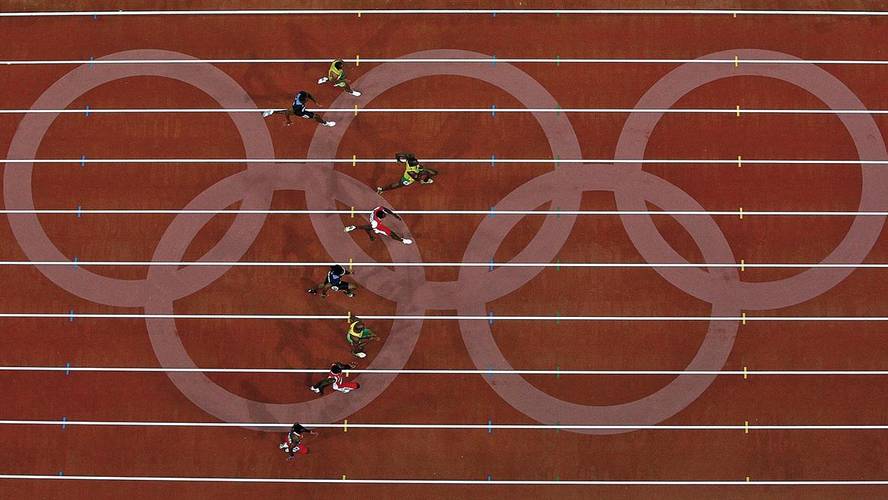Anti-doping and Olympic Games
Like every four years, the Olympic Games have arrived and the world, at least the world of sport, will almost stop. The time has come to achieve the dreams and/or objectives of many athletes, coaches, federative directors, politicians and companies. And with that moment, turn the dream into success or defeat. But with that failure not only will dreams lose: athletes and coaches may be closed the doors of the future, the directors of the federations will disappear the honor period, politicians will come the time to justify spending money, and many people can question the greatness of the homeland.
Why start an article on the fight against doping and the Olympic Games? Today, in many sports, the main image is the Olympic Games, and in general the image we see is very polar: success or failure. Success in number of medals. Olympic diplomas may also be taken into account, but all that is achieved from there is a failure for most people, regardless of how difficult and hard it is to reach the Olympic Games. And there the problems begin, or at least some wonder: Am I able to do anything to succeed?
--> The biological passport will be valid at the London Olympics.
If today we did a survey on the street to ask ourselves what doping is, in large proportion, it would be extracted that it is a substance or anti-health method. But it is not what is at the base. The WADA-AMA Code defines doping as: "Doping is defined as the occurrence of one or more of the anti-doping rule violations set forth in Article 2.1 through Article 2.8 of the Code". That is, go against a regulation. However, Articles 2.1 to 2.2 does not contemplate the presence of substances and/or methods that protect health or endanger health, although one of the causes of inclusion of certain substances in the list of prohibited substances is that of their possible health condition. And with this I do not want to deny that there are substances and/or methods that endanger health and therefore life, but that health is not the only reason, perhaps not the main one.
So why is the fight against doping necessary? Or is it not necessary? Where is the old "Olympic spirit"? As we have seen in the previous Olympics, the most important of the London Games is the show. The Olympic spirit, the friendship of youth and society, the ability to fight, friendship, etc., have remained in the background. The most important thing is sports results, both medals and brands. And this is not only the case at the Olympic Games, as some sports are everyday. But in most sports the Olympic Games are the four-year main screen in which money and aid from another four years are put into play. And then the usual question is put on the table: if they are professionals or live as professionals, are they not free to know what to take? Why not the free bar?
And the truth is that it is not an easy question to answer. Technology has helped a lot in many sports, but at the same time it has made a huge difference in sports equality: who has money gets the latest technology and who does not have is at a disadvantage. If allowed, why not see drugs or substances as "technology"? It is a daily question in the daily work of sports doctors. And as I said before, do not think it is easy to answer, especially if the anti-doping approach is only health. All or almost all substances used in doping are medicines. Medicines for the treatment of diseases with all the authorizations of the Ministries of Health of each territory. So are they really harmful substances? How is it possible that the medicines that doctors give to the population are harmful to athletes? On the other hand, high-performance athletes often have more medical checks than anyone else to know if a "drug" hurts them or not. In addition, many high-level athletes are workers in their profession and why not collaborate to maintain their health and performance? Are no medicines given to return to work as soon as possible? Is the health of the future really taken into account?
At this point and when you ask whether the fight against doping is necessary or not, the answer has to come another way. On the one hand, as doctors, using a substance should take into account three words: use, excessive use and misuse. In my opinion, taking into account health and analyzing well the causes of drug use, it is necessary to set limits so that this world is not regulated by the law of the jungle.
But, on the other hand, it cannot be forgotten that within the aforementioned sports equality, regulations are necessary to maintain a balance between all. If not, those who can get the most advanced technology broadly have great possibilities and leave no choice to others.
Therefore, the fight against doping is essential, but valued from another point of view. We recognize that doping is nothing more than a trap and that there are sanctions when regulations are violated. The problem arises when measures are put on the table to control when regulations are violated. I have nothing clear if any way is valid for control. I don't know if it's the real image of a clean sport.







